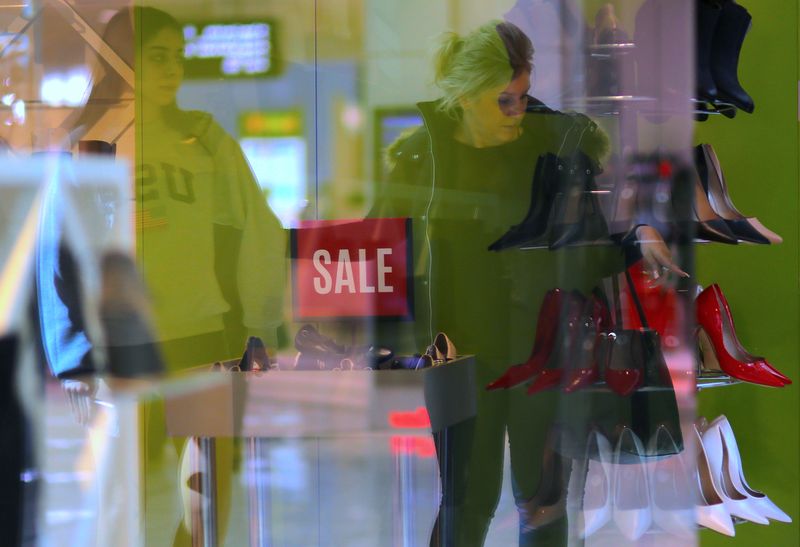By Stella Qiu
SYDNEY (Reuters) -Australian inflation slowed to an eight-month low in February, due in part to a sharp retreat in prices for holiday travel and accommodation, bolstering the case for a pause in interest rate hikes next month.
Data from the Australian Bureau of Statistics on Wednesday showed its monthly consumer price index (CPI) rose 6.8% in the year to February, the slowest rise since June of last year. That compared with 7.4% the previous month and market forecasts of 7.1%.
The monthly CPI index rose 0.2% in February from January. Prices excluding volatile fruit, vegetables and fuel rose 6.9% in the year to February, down from 7.5% in January.
Investors reacted by pushing the local dollar 0.2% lower to $0.6694, while further trimming bets of a 25-basis point hike from the Reserve Bank of Australia at the next policy meeting to just a 5% probability, compared with 15% before.
They had all but priced out any chance of a further hike in the cash rate, which currently stands at an 11-year high of 3.6%, after turmoil in the global banking sector threatened to sharply tighten financial conditions.
"The further sharp fall in inflation coupled with the softness of consumption will probably prompt the Reserve Bank of Australia to pause its tightening cycle next week," said Marcel Thieliant, a senior economist at Capital Economics.
Thieliant added that he still expected the RBA to hike for one last time in May.
Data showed that retail sales levelled off in February, suggesting consumers are reining in spending in the face of higher living costs and rising interest rates.
Wednesday's data showed inflation in February had been dragged down by a monthly 14.6% drop in costs for holidays and travel, as well as the slowest annual increases in a year for new dwellings and a levelling off in rent increases at 4.8%.
The statistics bureau also updated historical figures for the series to include electricity prices, which grew at a faster clip of 17.2% in February.
Analysts at ANZ still expect the RBA to hike rates in April, citing recent data releases including a strong labour force report, resiliant business conditions and solid spending on services.

"While the RBA has signalled its intention to pause at some point in coming months, we continue to think that the data is not yet consistent with a pause," they said.
RBA Governor Philip Lowe has said the central bank was closer to pausing its rate increases because monetary policy was now in restrictive territory, and suggested a halt could come as soon as April depending on the data.